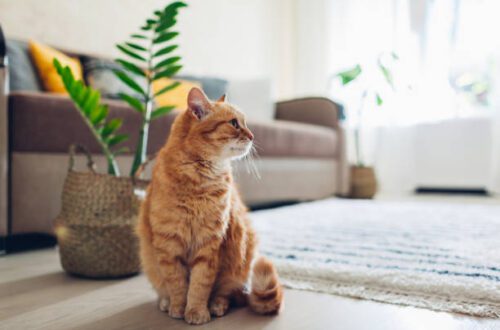The bond between a pet and its human companion can be one of life’s most rewarding and meaningful relationships. When that bond is broken, the grief can be overwhelming. The process of mourning a beloved pet can be an emotionally turbulent journey, but with the right understanding and guidance, it is possible to find healing. This blog post will explore the complexities of grieving a pet and provide helpful resources for those coping with the loss.
Why losing a pet can be so painful
Losing a pet is a heart-wrenching experience that can leave pet owners feeling a range of emotions, such as sadness, guilt, anger, and even depression. The pain of pet loss is often underestimated by those who haven’t experienced it themselves, and pet owners may even feel embarrassed or ashamed about the level of grief they are experiencing.
The reason for the intense pain of losing a pet is that pets often become integral parts of our lives. They are our constant companions and loyal friends and provide unconditional love and support. Pets also bring structure and routine to our lives, and losing them can disrupt our sense of normalcy. Moreover, pets don’t judge us, criticize us, or hold grudges, making them even more emotionally significant to their owners.
Additionally, pets offer a unique companionship often absent in human relationships. They offer unconditional love and support and are always there to listen and provide comfort. Pets become a source of comfort and security for many owners, especially those who live alone or struggle
with mental health issues.
Losing a pet can also be challenging because pets don’t live as long as humans, which means we know from the beginning that we will likely outlive them. As a result, we may start to dread the inevitable loss of our furry friends when we bring them home.
The bond between pets and their owners
Pets have a unique way of embedding themselves deeply into our lives and our hearts. They are loyal companions who bring comfort, joy, and unconditional love. The bond between pets and their owners is extraordinary; when that bond is broken, the pain of loss can be overwhelming.
Pets are often considered family members, and it’s not difficult to see why. They offer constant companionship and a listening ear and are always there to provide comfort in times of stress or sadness. For many, their pets are a source of emotional support, providing an important connection to the world around them.
The bond between pets and their owners is built on trust and mutual love. Pets have a unique ability to sense our moods and emotions and are always there to offer a reassuring presence when we need it most. In return, pet owners provide their pets with food, shelter, and care, creating a nurturing environment that helps them to thrive.
Not just the daily routines create the bond between pets and their owners. Pets often provide a sense of purpose and responsibility that can benefit our mental health and well-being. Taking care of a pet can give us a sense of pride and accomplishment, and it’s not uncommon for people to describe their pets as their “reason for getting up in the morning.”
We’re not just losing an animal companion when we lose a pet. We’re losing a beloved family member, a source of comfort and support, and a true friend. It’s important to recognize the depth of this loss and give ourselves time to grieve and heal. In the next section, we’ll explore the stages of grief we may experience when losing a pet and some coping mechanisms that can help us through this difficult time.
Stages of grief when losing a pet
Losing a pet can be a devastating experience. Just like with human grief, it is important to recognize that everyone grieves differently and that you may go through stages of grief when losing a pet. The first stage of grief is often denial. This can involve feelings of disbelief or shock that your pet is gone. You may even try to convince yourself that your pet is just on vacation or will return soon.
As the reality of your pet’s loss sinks in, you may feel angry. You may find yourself lashing out at those around you or at yourself. This is a normal reaction to a loss, and giving yourself time to feel your emotions is important.
In this stage of grief, you may find yourself bargaining with a higher power, wishing you had done things differently, or trying to find ways to bring your pet back. You may feel guilty or think that you could have done something to prevent your pet’s loss. As the reality of your loss sets in, you may experience sadness and depression. This can include feeling withdrawn or isolated, physical pain, or difficulty sleeping.
Eventually, you will come to terms with your pet’s loss. You may still feel sad or miss your pet, but you will feel more at peace with what has happened. Remember that everyone grieves differently, and there is no “right” way to grieve. Some people may move through the stages of grief more quickly, while others may take longer. Whatever your experience, be gentle with yourself and take the time to process your emotions.
Coping mechanisms for pet loss
Losing a pet is never easy. The bond you share with your furry friend can be one of the most profound relationships in your life, and saying goodbye can feel like losing a part of yourself. Taking care of yourself and finding healthy ways to cope with your grief is important during this challenging time. Here are some coping mechanisms for pet loss that you might find helpful:
- Allow yourself to grieve: It’s okay to feel sad, angry, and devastated when you lose a pet. Allow yourself to experience the full range of emotions from this type of loss. Don’t let anyone tell you to “just get over it” or “move on.” Grieving takes time, a normal part of the healing process.
- Lean on your support system: Reach out to family and friends who understand what you’re going through. Share stories about your pet, talk about your feelings, and allow others to support you. You don’t have to go through this alone.
- Create a memorial: Honoring your pet’s memory can be a healing experience. You might consider creating a memorial for your pet in your home or yard. You could make a photo album, create art, invest in one of the sculptures or keychains from www.woollypet.com, or plant a tree in your pet’s honor. Whatever feels right to you is a great way to remember your pet and find comfort.
- Seek professional help: If you’re struggling to cope with your grief, consider seeking professional help. A therapist can provide the support and tools to work through your emotions and move forward.
One way to find healing after losing a pet is to help other animals. Consider volunteering at a local shelter or rescue organization. Not only will you be helping animals in need, but you’ll also be able to honor your pet’s memory by giving back. Coping with pet loss can be challenging and emotional, but with time and the proper support, you will find a way to heal and move forward. Remember to be kind to yourself and honor your pet’s memory meaningfully.
Losing a pet is never easy, and the pain that comes with it is often profound. But it’s important to remember that grieving is a natural part of the healing process, and it’s okay to feel the range of emotions that come with it. By acknowledging and honoring our feelings, we can heal and move forward. And although we can never replace the love and companionship of a pet, we can honor their memory and impact on our lives. So, whether you’re grieving the loss of a pet or know someone that is, send them some love and maybe a couple of pet memorial gifts to help them see that they are not alone.






